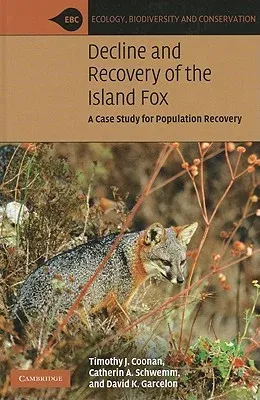Timothy J Coonan
(Author)Decline and Recovery of the Island FoxHardcover, 22 July 2010

Qty
1
Turbo
Ships in 2 - 3 days
In Stock
Free Delivery
Cash on Delivery
15 Days
Free Returns
Secure Checkout

Part of Series
Ecology, Biodiversity and Conservation
Print Length
228 pages
Language
English
Publisher
Cambridge University Press
Date Published
22 Jul 2010
ISBN-10
0521887119
ISBN-13
9780521887113
Description
Product Details
Book Format:
Hardcover
Country of Origin:
GB
Date Published:
22 July 2010
Dimensions:
22.86 x
15.24 x
1.52 cm
Genre:
Ecology
ISBN-10:
0521887119
ISBN-13:
9780521887113
Language:
English
Location:
Cambridge
Pages:
228
Publisher:
Weight:
498.95 gm